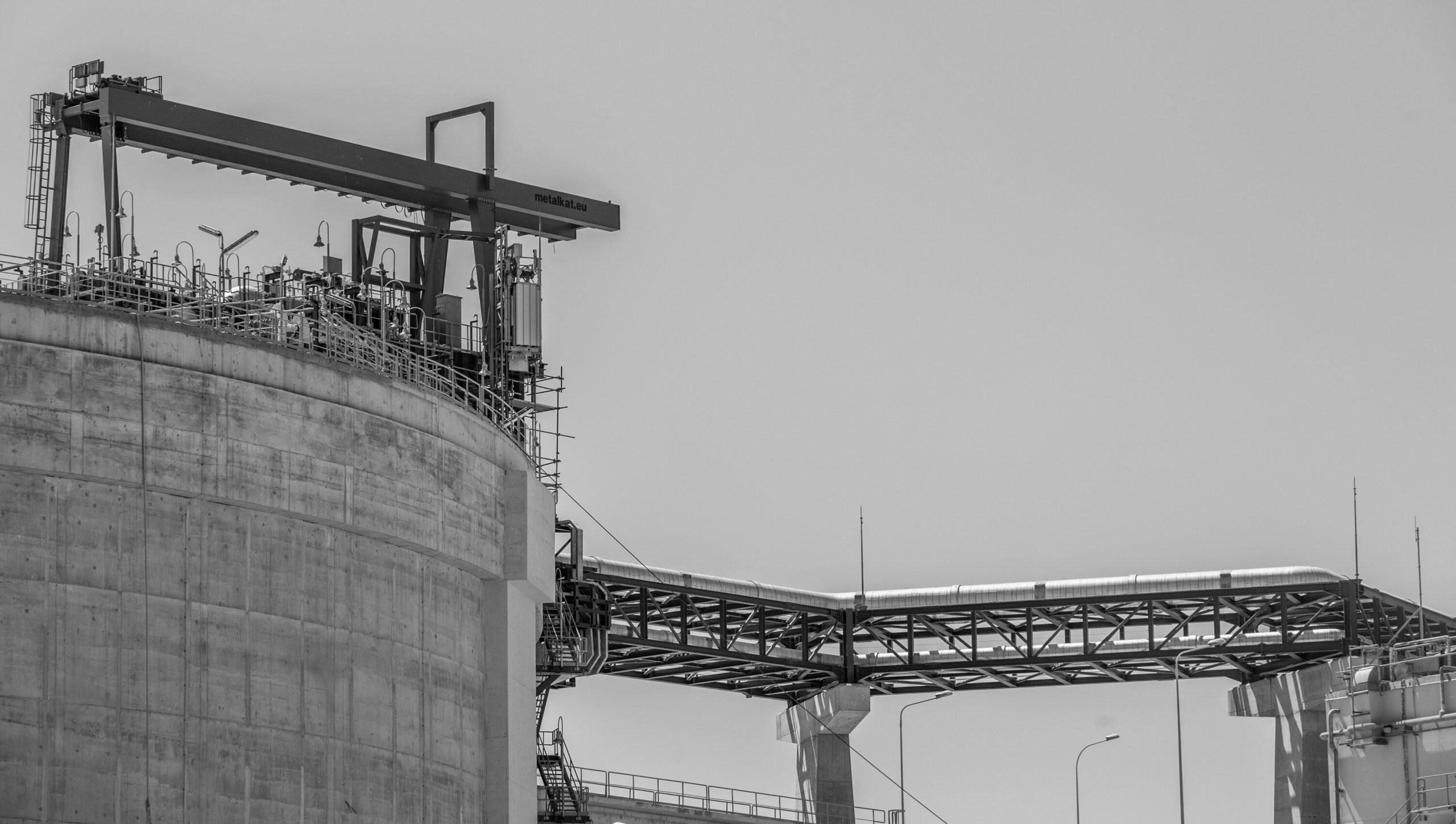2019 proved to be a record year regarding LNG imports and natural gas exports in Greece. Almost half of the quantities that covered the users’ needs of the National Natural Gas System (NNGS) derived from DESFA’s LNG Terminal in Revithoussa.
According to the data provided at DESFA’s website, domestic natural gas consumption amounted to 4.9 bcm or 57.4 m MWh with 2.6 bcm or 31.4 m MWh being regasified at the Revithoussa LNG plant. Essentially, 47,6% of the natural gas demand was covered by LNG imports, that were increased by 190% in 2019 compared to 2018. 50 LNG tankers from diversified supply sources reached Revithoussa in 2019, while in 2018 the number of calls was 24 and in 2014 only 14. It is worth noting that due to the recent major upgrade of the terminal, the regasification rate (or send out capacity) of the terminal has significantly increased and storage capacity increased by 73% with the operation of the 3rd storage tank. According to DESFA’s data, regasification quantities during 2019 quintupled compared to 2014.
Greece has three entry points for natural gas; one in the Greek-Turkish borders in Kipi, one in the Greek-Bulgarian borders near Sidirokastro and one in the Revithoussa LNG Terminal (Ag. Triada entry point). In 2019, 53% of the natural gas was imported through the two NNGS main entry points from Bulgaria (2.2 bcm) and from Turkey 0,7 bcm, while 47% was imported through the Entry point of Ag. Triada. DESFA’s infrastructure contributes significantly to diversification of natural gas sources and security of supply. The liberalization of the energy market and the Third Party Access (TPA) regime under which DESFA operates, enhance price competition. TPA, is governed by the provisions of European Union’s and National legislation and means open access to any interested parties, according to the provisions of NNGS Network code.
For the first time, with the sole exception of the crisis in Ukraine in 2009, a continuous and systematic increase in the quantities of natural gas exported to Bulgaria is noted, setting Greece as an energy hub in the wider region. The upgrade of the NNGS (3rd LNG storage tank, increase of the firm capacity for reverse flow at Sidirokastro, and the send out rate of the terminal, upgrade of the large scale jetty) together with the low LNG prices, gave a boost to the international trade, as in 2019 quantities equal to 7.7 m MWh of natural gas were exported from Sidirokastro to Bulgaria, in contrast to 2018 when the total quantity amounted to 0.087 m MWh
The total domestic natural gas consumption (MWh) increased by 81% compared to 2014 and by 9,4% compared to 2018, a fact that highlights the penetration of natural gas into the Greek market. This growth reflects the continuous increase of natural gas share in the energy mix of Greece, gradually replacing a share of lignite. At the same time, major infrastructure projects, developed by DESFA over the past six years, have contributed to bringing natural gas to consumers faster.
The biggest percentage of the natural gas consumption within 2019 is connected to the production of electricity, covering 65% of the overall domestic demand, followed by residential and commercial consumers supplied through distribution networks, consuming 20% of the overall demand, while 15% of consumption was covered by national industries.
LNG due to lower prices in comparison to pipeline gas, dominated in domestic demand and led to the increase of exports. According to DESFA’s data, Revithoussa received cargoes from 10 different countries. Algeria retains a dominant position in the quantities of LNG imported into the country by 20%, with Norway and Qatar following with 19% and 18%, respectively. Nigeria also possesses a strong position (16%), with Egypt (9%) and USA (8%) at a lesser extent, followed by Angola, France and the Netherlands (from 3% each) and Trinidad (1%).
DESFA’s LNG Terminal in Revithoussa provides diversification of the supply sources of natural gas, enhancing competition in the Greek energy market, as well as security and adequacy of the country’s supply with natural gas.
Gas industry has proven a resilient component in supplying energy and is fundamental for meeting EU`s long-term decarbonisation targets as per EU Green Deal objectives. Natural gas is the only bridge fuel for sustainable energy transition. Local market is growing strongly, delivering concrete environmental benefits, also when considering uses of natural gas to new market sectors such as the transportation sector by lowering GHG and air pollutant emissions.
A great example of such benefits is the use of natural gas to the maritime sector. Marine LNG reduces up to 20% CO2 emissions compared with oil-based fuels over the Well-to-Wake cycle and improves air quality in urban areas and ports; Sulphur oxides (SOx) and particulate matter (PM) emissions are practically eliminated, while NOx is reduced by up to 90% compared to heavy fuel oil. In ten years’ horizon, LNG bunkering could lead to the reduction of approximately 250 ktons of CO2 compared to MGO, assuming for year 2030 a demand of 650 Mcm.
When referring to G-Mobility and taking into account a ten years’ horizon, the adoption of natural gas as a fuel from M&HCV (Medium & Heavy Commercial Vehicle) could lead to the reduction of CO2 emissions up to 135 ktons, assuming for year 2030 a demand of 345Mcm. Reduction of SOx is estimated at approximately 99% compared to gasoline or diesel oil.
In Greece gas will play a critical role in power generation, given the targets already set on GHG emissions reduction and the lignite phase out plan. More than 50% of the annual gas demand is actual consumed for power production. The switch of lignite to gas for electricity production can save huge amounts of CO2 emissions, taking into account that we save about 2/3 CO2 emissions when using natural gas. Natural gas consumption for power generation increased 13% in 2019 compared to 2018. Assuming that the 13% increase derives exclusively from coal-to-gas switching in the power sector, then we have approximately 1,8 m tons lower CO2 emissions.







